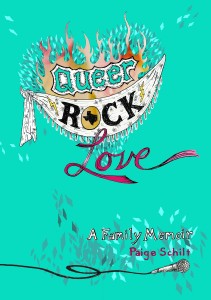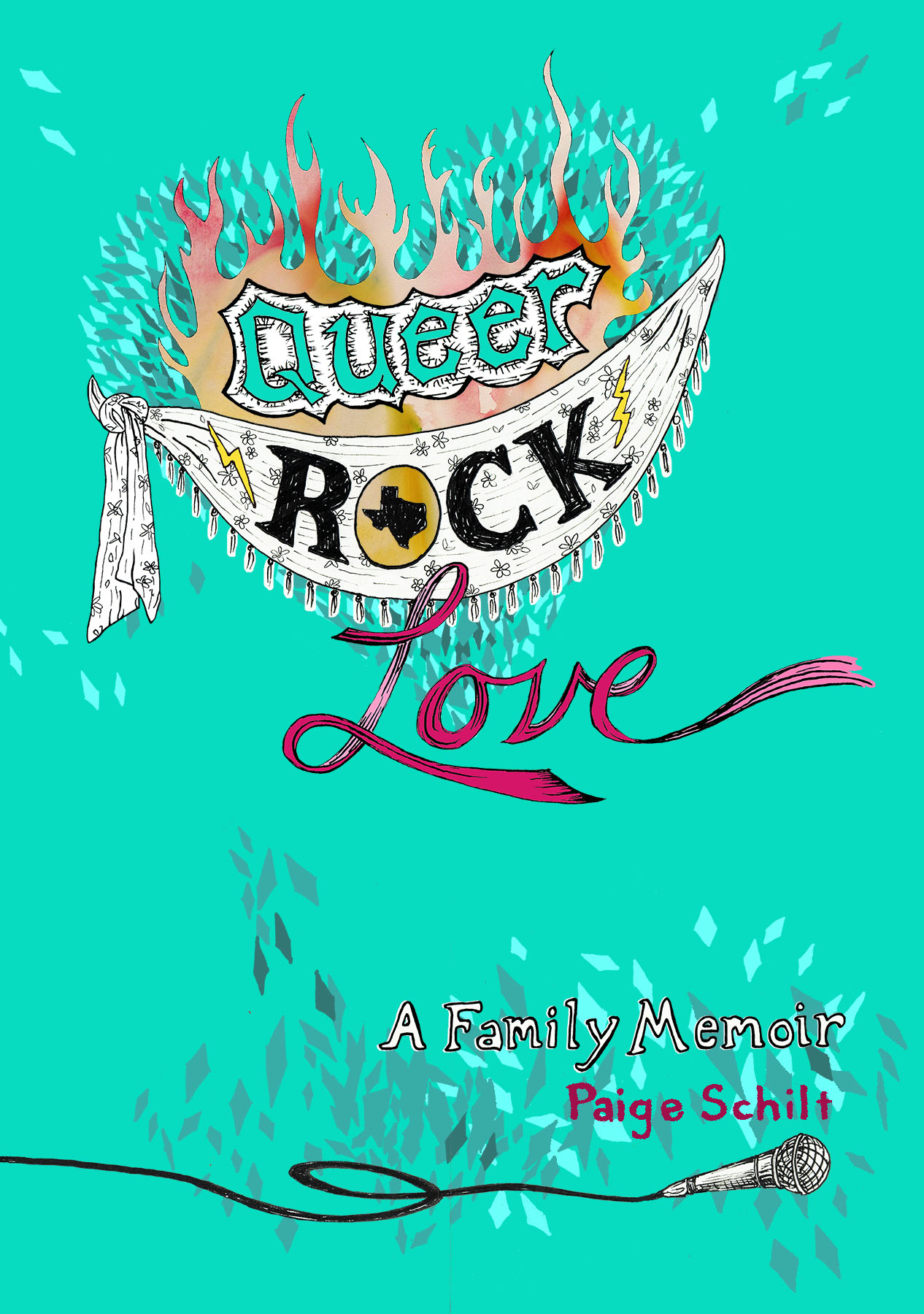 Queer Rock Love: A Family Memoir
Queer Rock Love: A Family Memoir
by Paige Schilt
Transgress Press. 226 pages, $19.99
PAIGE SCHILT’S new memoir Queer Rock Love opens with Schilt embedded in graduate school, immersed in radical political thought and queer theory, and only beginning to realize that she is “not only politically gay” but actually gay. Schilt, not a transgender person herself, would tell herself that her “interest in trans subcultures was merely academic.” Then she met Katy, adorned in a rubber prosthetic “man-chest,” who “with his or her butch chivalry … was the sexiest thing I had ever seen.” As Schilt came to consciousness with respect to both her identity and her desire, she maintained a multifaceted perspective—aware and unafraid enough to interrogate her own hang-ups and assumptions, to own her blind spots and desires, and to keep her feelings in perspective. This prismatic viewpoint carries through the book and gives each page a layered richness.
Schilt found romance and, later, partnership with Katy. The memoir shifts between critical and personal voices in the face of domesticity: Schilt maintains a healthy critique of marriage—“Anyone with any kind of radical politics knew that marriage was a backward way to seek equality”—while at the same time decking herself out in “the drag queen version of her [mother’s] 1967 wedding outfit” and allowing herself joy in bringing her and Katy’s chosen families together in a backyard wedding celebration. She also allows herself the woundedness of seeing her and Katy’s marriage invalidated by Texas voters. Not long after Schilt gave birth to their son, Waylon, she realized she had to temporarily shelve her “political objections about the medicalization of motherhood” in order to make sure Waylon had enough calories, but kept the objections in mind nonetheless.
Throughout the memoir, Schilt unflinchingly looks at her relationship with Katy, staying present with the moments where an ideal of enlightened queer familyhood clash with the real difficulties of being people in love. Years after their thrilling first encounter, Katy’s “man-chest” moves from a site of erotic identification to a point of conflict, as Paige takes on the bulk of parenting while Katy recovers from breast reduction surgery. When her fatigue and frustration simmer over in waves of anger, blame, and guilt, the moment is at once heartbreaking, crystalizing, and bigger than politics or theory. Schilt has done the work of representing Katy’s struggles in transition, her own feelings as she struggled through these times, and her analytical perspectives on Katy’s identity and her own.
Schilt’s prose, as honest as it is discerning, guides us through difficult territory. In Queer Rock Love, Schilt ditches the closet, takes her theoretical bent outside the academy, and comes to terms with a vulnerability that lets her connect her activist and theorist selves with her own emotional reality. She lets an expansiveness into her own chest and owns her own queer narrative: the story of a cis (non-transgender) woman loving her trans spouse deeply. At the end of the book, Waylon enlightens his parents as to the broader gender continuum that he sees in the world, his own family of girls and boys and girl-boys. We are left to admire this portrayal of the personal as political, the theoretical as personal.
________________________________________________________
Jason Craft writes and develops software in Austin, Texas.






